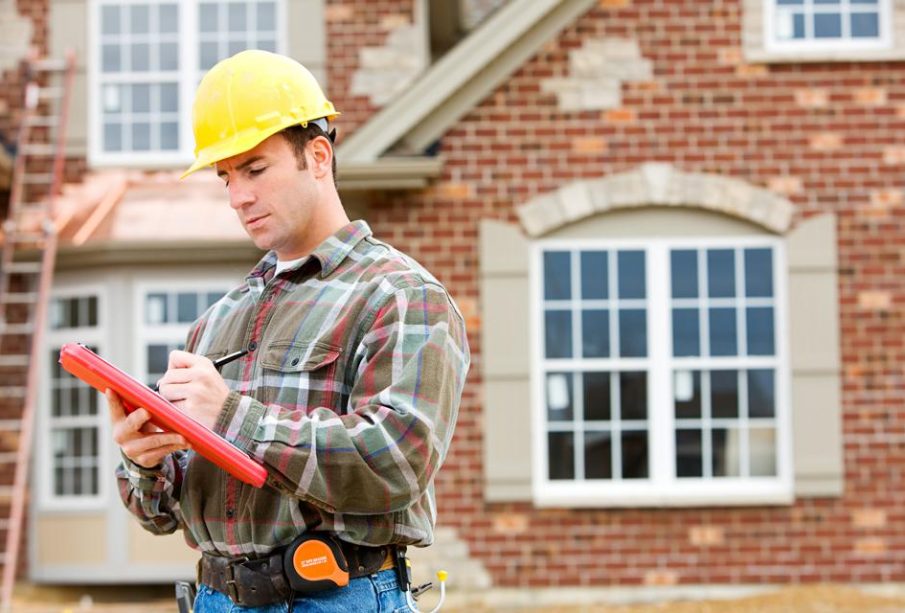
A home purchase can be a very exciting and rewarding experience. Before you sign a contract, make sure that you are purchasing the best property for your money. The author explains what makes a good home buyer inspection, and gives some tips to buyers who are looking for ways to make sure their purchase is worthwhile.
What should a homebuyer inspection include?
A professional inspection is essential when you are looking to buy a house. The inspection should cover the roof, insulation, water damage, and other issues. Here are some suggestions for what to include in a homebuyer’s inspection.
Roof: Look for any signs of damage, leaks, or dents on a roof. You should also inspect skylights and vents for rain or snow.
-Insulation: Inspect insulation for signs of pests, moisture buildup, or fire. To ensure that insulation is compliant with current codes, it is important to verify the certificate of occupancy.
-Walls & Ceilings: Check ceilings and walls for signs of water damage and cracks. You should also inspect wallpaper, paint, trim, and other materials for signs of wear.
-Windows and doors: Weather stripping, caulking and seals/gaskets should all be checked on windows and doors. Before closing the property, it is important to inspect the windows and doors for any issues.
An important step in buying a home is a home buyer inspection
How often should a home inspector be done?
Home inspections should be done on a regular basis, usually every six months. You can choose how often you want to inspect your home, but it is recommended that an inspection be done at least once per year.
What are the disadvantages of relying upon a homebuyer inspection to inspect your home?
When relying upon a homebuyer’s inspection, there are some things you should keep in mind. It’s not always accurate. It can also be costly. It’s just one piece of the puzzle. Before you make an offer on a property, there are three things you should consider:
The condition of the roof and basement. A home’s electrical wiring and roofing all impact how safe it is to live. You should immediately address any signs of water damage and leaks.
-The condition and age of appliances and fixtures. It is important to check if appliances are in good working order and up-to-date. You may need to replace older appliances soon. This could affect the value of your house.
-The area’s zoning requirements – If you are looking to purchase an older property in an established community, ensure that the zoning is correct. You may not be able to purchase or build in a newer neighborhood if there are stricter regulations.
Here are some things to look out for when inspecting your home in order find any unknown problems.
It is crucial to do your research and make sure that the property you’re looking at buying is in good shape before you commit to purchasing a home. A home inspection in Yakima is one way to ensure this. These are the things you should look out for in a home inspection.
-Structural stability. Make sure that the foundation, walls and roof are solid. Having structural problems can lead to future problems such as leaks and structural failure.
-Wiring and Plumbing: Make sure to inspect all wires and pipes for loose or unsightly connections. Make sure that there are no electrical cords or gas lines. These systems could pose a danger to you and your family if they are not working properly.
-Heating and cooling: Check that all heating and cooling systems are working properly. Also check the insulation in walls, ceilings and floors. It is possible to have serious problems with any of these systems.
-Sewerage & drainage: Check the drainage system to make sure it is free from clogs and leaks. This could lead to flooding or water damage.
What can you do to make your home inspection more efficient?
You can make your home inspection more efficient by following these tips: Take notes, organize the inspection and have a list of questions.
You can make your home inspection more efficient.
1. Research is key. Before you go to your home inspection, make sure you have all of the necessary information. This includes understanding your agent’s concerns about the property and any repairs required.
2. Being organized. To ensure you don’t forget anything, keep a list of all the items that you need to inspect during inspection. This will help you to stay on the job.
3. Take photos and make notes. Take photos and take notes about any problems or issues you discover during inspection. This will allow you to document the issues and avoid any misunderstandings.
4. Get feedback from your agent as well as other home inspectors. Ask your agent and other home inspectors for feedback on how they felt about the inspection. Also, ask them if there were any improvements that they would make. Your feedback will be valuable in helping you become a better homebuyer inspector.
Why Polished Concrete Remains a Top Flooring Trend
September 30, 2025How Earthmoving Contractors Power Large Construction
September 29, 2025How Curtains and Blinds Transform Interior Spaces
September 29, 2025
Leave a reply Cancel reply
You must be logged in to post a comment.
-
Cherries have many health benefits.
November 3, 2023 -
Double Chin Exercises
June 30, 2023


